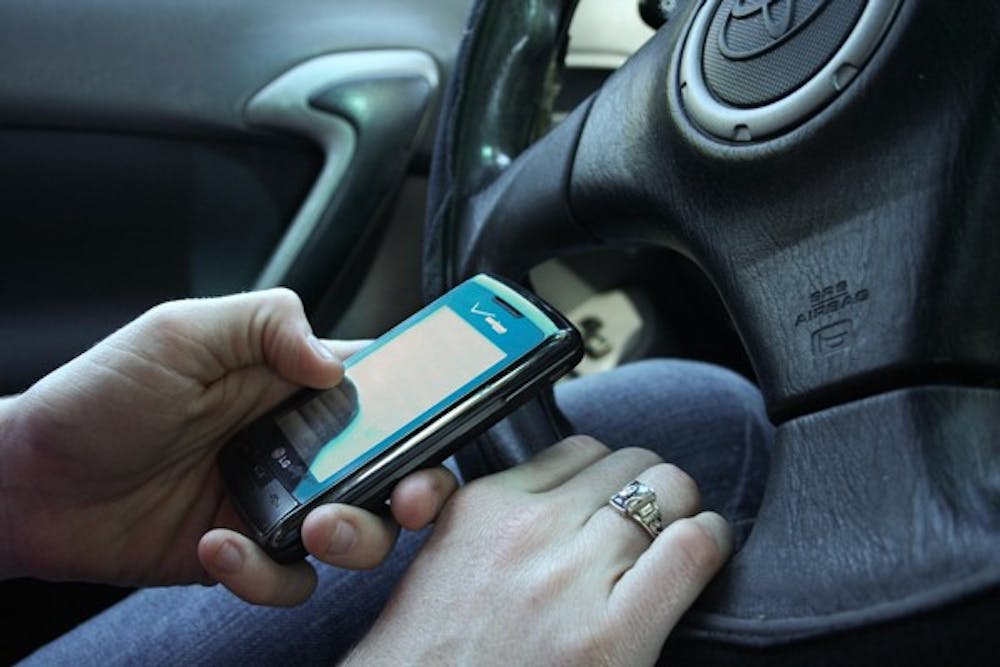The next time you consider texting a friend that you’re running late while driving, you might want to think twice.
On March 15, the Arizona Senate approved a bill banning texting while driving, and the bill is now up for consideration in the House. Senate Bill 1538 states that drivers operating a motor vehicle are prohibited from using a cell phone or a personal digital assistant to read, write or send text messages
In 2007, the city of Phoenix passed a texting ban for motorists. The state has tried in recent years to add itself to the list of 30 other states that prohibit all drivers from texting.
“Texting while driving is one of the biggest public health issues on the road today,” said Linda Gorman, spokeswoman for AAA-Arizona. “As an advocate for the safety and security of the motoring public, AAA wholeheartedly supports this legislation, as it would save lives by banning the most dangerous distraction on the road.”
Senate Bill 1538 states that a violation would result in a $50 fine. If the person were involved in an accident, he or she would be subject to a fine of $200.
The bill would not prohibit talking on the phone while driving. Drivers can also type a name or number to make a call.
While recognizing the dangers, many students continue to text and drive.
“I definitely do it,” biochemistry and English literature junior Eugen Pohoata said. “The sad part is, I have heard of friends who have died because they were texting behind the wheel and ran into something, or somebody ran into them. I mean, it’s unfortunate.”
A 2009 study by Virginia Tech Driving Institute revealed that people who text while driving are 23 times more likely to get into an accident.
“Studies have shown that texting on the phone while driving can be about the equivalent of driving legally drunk,” said Jameson Wetmore, assistant professor in the School of Human Evolution and Social Change and the Consortium for Science, Policy and Outcomes.
Wetmore said people often underestimate how much brainpower they need to control a vehicle moving 60 miles per hour.
Contrary to popular belief, the number of adults texting while driving is larger than the number of teenagers texting while driving, according to a survey done in May 2010 by the Pew Research Center.
In 2009 alone, 5,474 people were killed and 448,000 were injured in car crashes involving distracted driving, according to the texting while driving death statistics compiled by the National Highway Traffic Safety Administration. Distracted driving consists greatly of cell phone use and texting while driving, as well as other forms of activities such as eating, talking with passengers and daydreaming.
“I am not entirely convinced that legislative mandates banning cell phone use or texting while driving are the way to go,” said Ram Pendyala, professor in the School of Sustainable Engineering and the Built Environment.
Pendyala said enforcement of such laws is difficult, since drivers who would comply with the regulation are probably already considered safe drivers, while drivers who wouldn’t are likely to be aggressive drivers.
“My feeling is that the solutions are likely to be elsewhere,” Pendyala said. “There needs to be a lot of driver education, training, and awareness; compliance rates for seatbelt use are quite high, not so much, in my opinion, because of enforcement, but because drivers are genuinely educated and aware of the benefits that seat belts provide.”
Pushing ahead with his legislation, sponsor Sen. Al Melvin said in a statement, “The sole motive of this bill is to save lives.”
Reach the reporter at kvanklom@asu.edu





